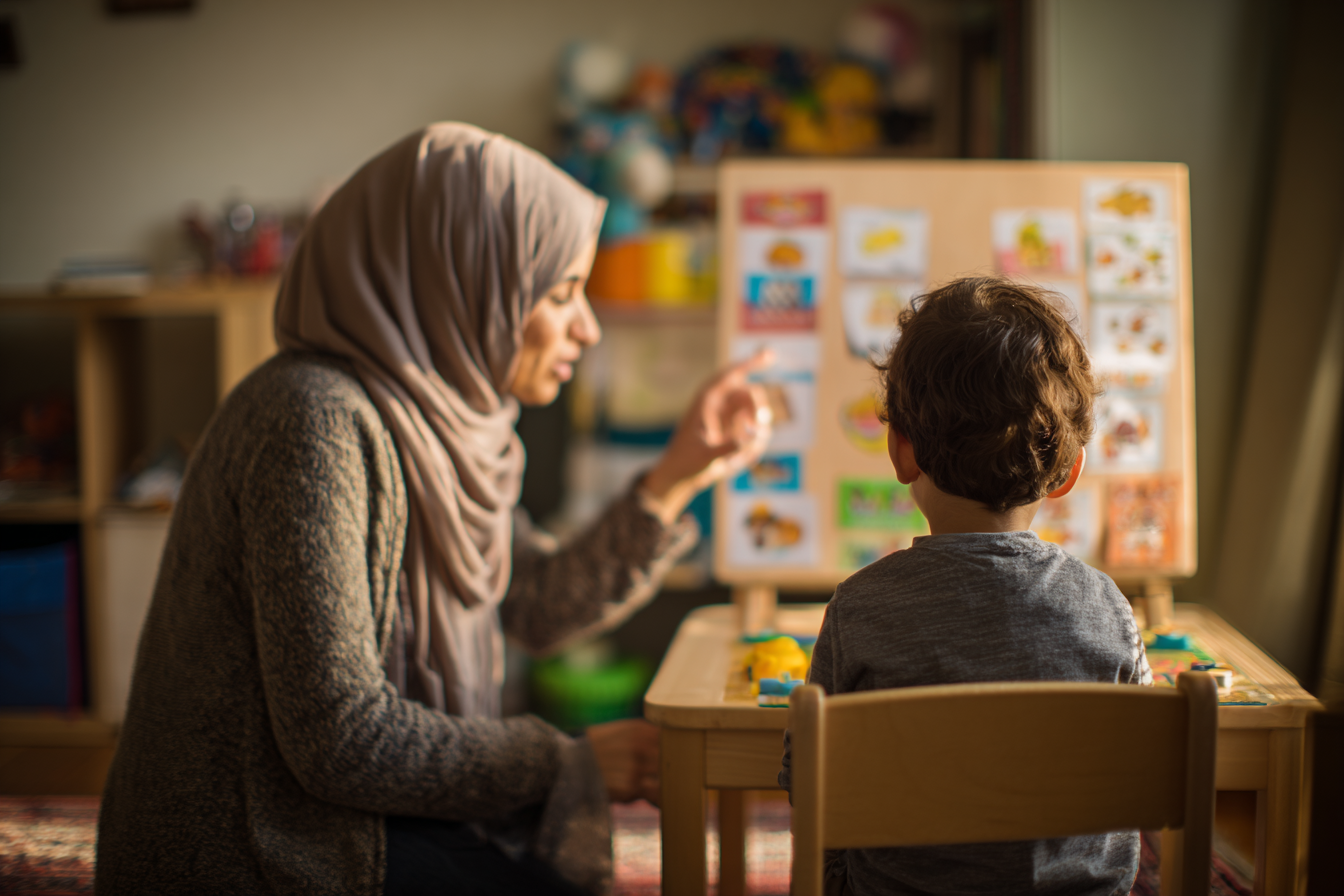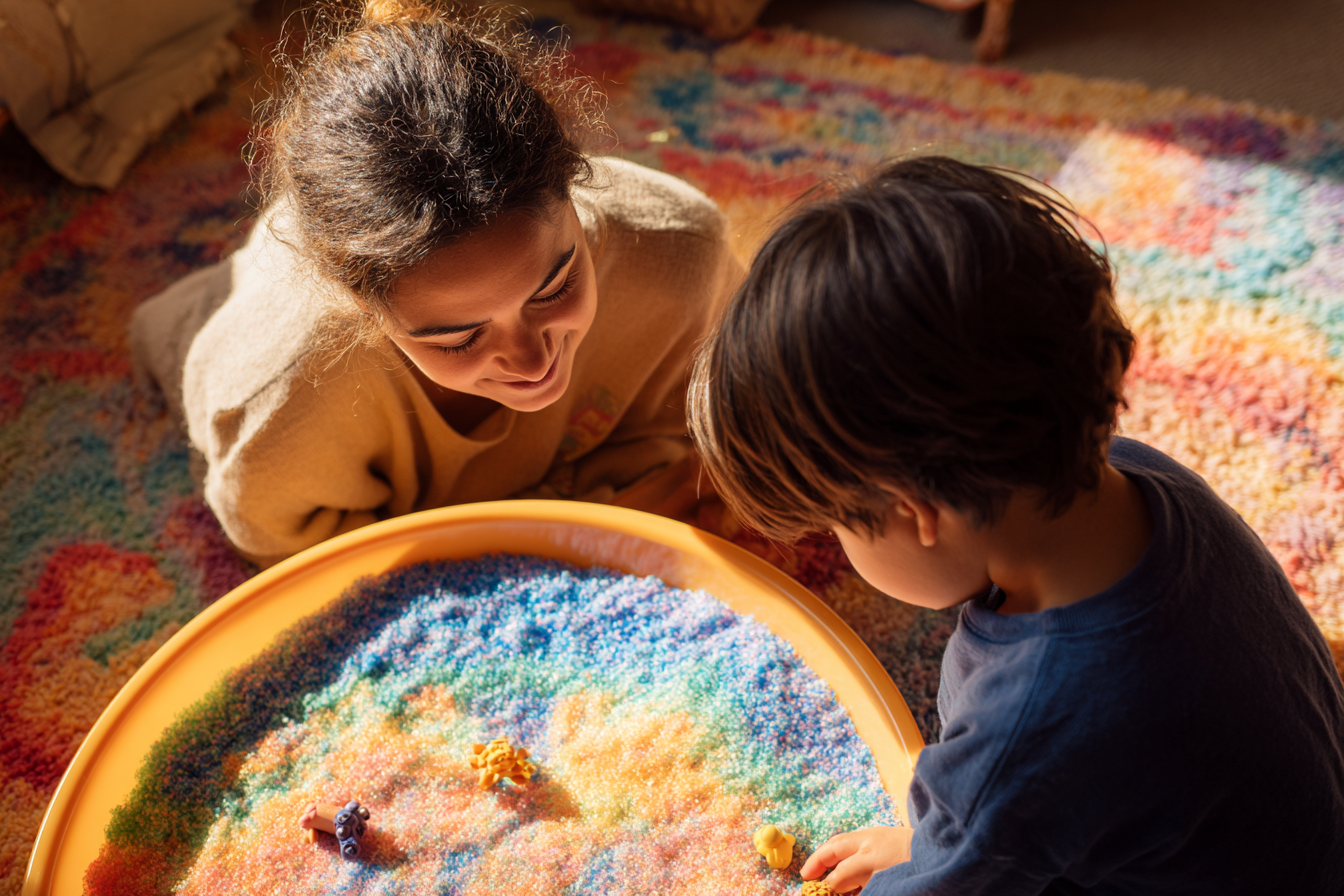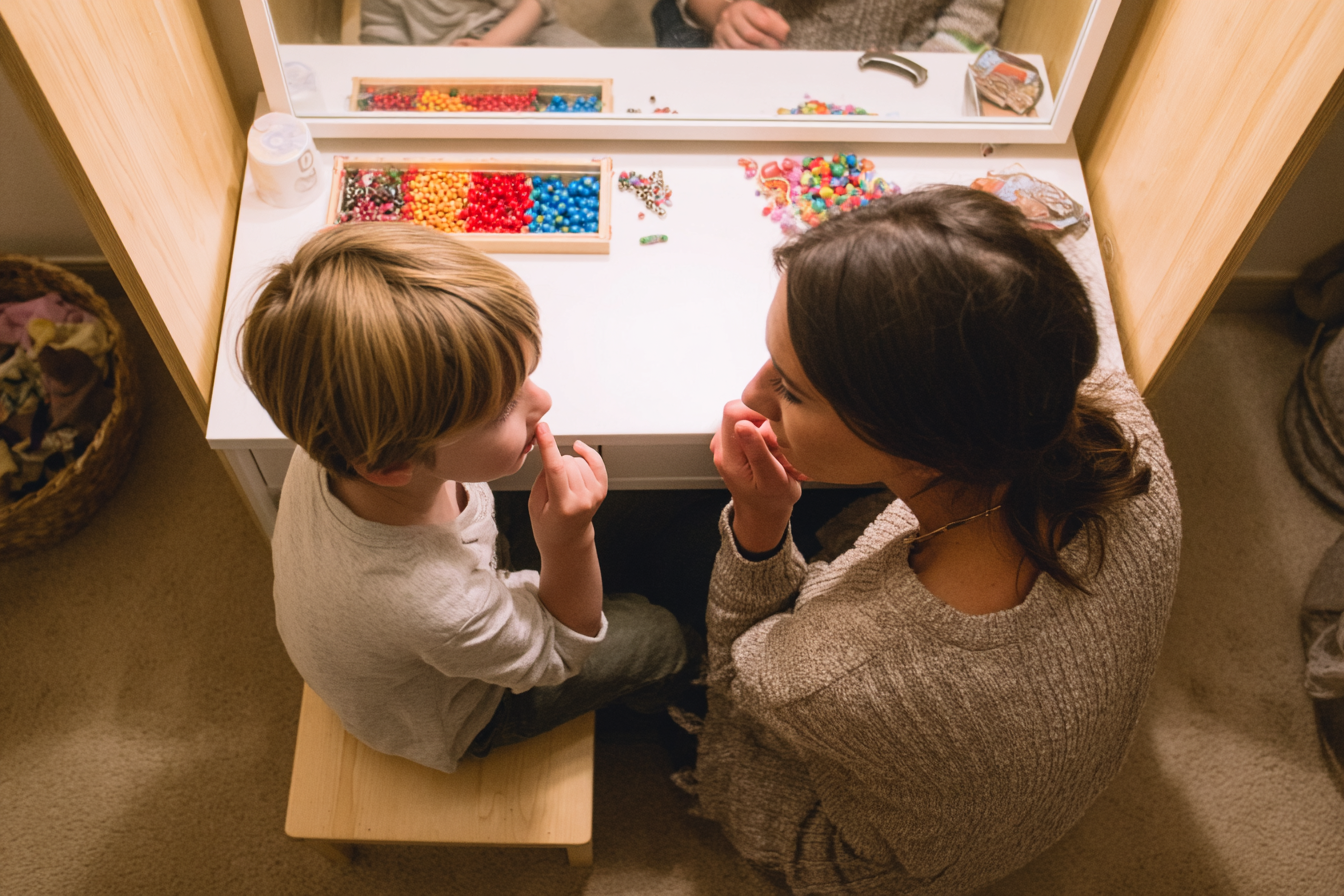Warm, evidence-based speech therapy for little ones and their families in Sydney.
![[background image] colorful classroom setting (for a preschools & daycare)](https://cdn.prod.website-files.com/686c833222f36f2180151efc/686e4281f885c01fdc2e1c88_sp6.png)




Supporting children in the critical early years to build foundational communication, play, and social interaction skills.
Addressing difficulties with articulation, phonological processes, and motor-based speech disorders to improve speech clarity.
Enhancing both expressive and receptive language, including vocabulary, grammar, sentence structure, and comprehension.
Providing support for children who experience fluency difficulties, including repetitions, blocks, and prolongations.
Supporting children with complex communication needs through the use of AAC systems such as communication books, devices, or visuals.
Helping children develop the skills needed for successful interactions, including turn-taking, understanding social cues, and building peer relationships.

We take a warm, individualised, and evidence-based approach to supporting your child. Whether your child has a diagnosis or is simply needing extra support, we work collaboratively with families, educators, and health professionals to help your child reach their communication potential.
Therapy can be provided through clinic-based sessions, home visits, or telehealth, depending on your child’s needs and your preferences.
Choose what works best for you and your child — at our friendly clinic, in the comfort of your home, or through secure online sessions.
Mobile
Clinic
Telehealth
Heartfelt stories from our community
We cherish the opportunity to nurture communication skills in children. Here’s what families have to say about their journey with us and the positive changes they’ve witnessed.

Our child’s confidence has blossomed. The team’s nurturing environment made each session feel like a safe haven, and I have seen such a big difference since beginning with The Speech Sanctuary.

Every day brings new words and expressions. The therapists’ dedication and creativity make all the difference. My child has improved so much and I would recommend the team to anyone nearby.
![[background image] colorful classroom setting (for a preschools & daycare)](https://cdn.prod.website-files.com/686c833222f36f2180151efc/686e4281d2aa578f2b607d55_sp12.png)
Have a question? Our team is here to help with anything you need. Reach out and we’ll respond with care.

Ready to begin? Book a session and we’ll guide your family every step of the way.

Are you a GP, educator, or allied health professional? Connect with us to refer a child or discuss working together.

Share your feedback or let us know how we can support your family better. We value your voice.
We’re here to help you feel confident and supported. Find answers to common questions about our speech p services, sessions, and what to expect.
A Speech Pathologist (also known as a Speech Therapist) assesses, diagnoses, and treats children who have difficulties with:
• Speech sounds – producing clear and accurate speech
• Language – understanding and using words, sentences, and grammar
• Fluency – speaking smoothly without stuttering
• Voice – using the voice safely and effectively
• Social communication – using language appropriately in social situations
• Feeding and swallowing – safe and efficient eating and drinking (in some practices)
• Alternative communication – using Augmentative and Alternative Communication (AAC) for children who are non-verbal or have limited verbal language.
Children may benefit from seeing a Speech Pathologist if they:
• Are not meeting expected communication milestones
• Have difficulty being understood by others
• Struggle to follow instructions or express their needs
• Repeat sounds or words (stuttering)
• Have a diagnosed developmental condition (e.g., Autism Spectrum Disorder, Down Syndrome)
• Use limited words or gestures to communicate
• Experience difficulty interacting with peers or forming friendships.
It can be difficult to know whether your child is developing typically or might benefit from extra support. You may wish to consult a Speech Pathologist if you notice any of the following:
For children under 3 years:
• Not babbling or using sounds by 12 months
• Not saying first words by 18 months
• Using fewer than 50 words by 2 years
• Difficulty understanding simple instructions
• Limited eye contact or social interaction
• Not combining two words together by 2.5 years
For preschool and early school-aged children:
• Speech that is difficult to understand
• Not saying certain sounds that are expected for their age (e.g., “k,” “g,” “t,” “d,” “s,” “r”)
• Replacing or omitting sounds in words (e.g., saying “tat” instead of “cat”)
• Difficulty expressing thoughts clearly
• Problems following instructions or answering questions
• Limited vocabulary or short, incomplete sentences
• Stuttering or repeating sounds, syllables, or words
• Trouble interacting or playing with other children
For school-aged children:
• Difficulty learning to read, spell, or write
• Ongoing articulation difficulties or mispronunciations
• Struggles with classroom instructions or communication
• Frustration when trying to express themselves
• Trouble making or keeping friends due to communication issues
• Needing support with social communication or narrative skills
If you are ever unsure, it is always better to seek advice early. Early support can make a significant difference in your child’s development.
Sessions are play-based and engaging, using games, stories, and activities your child will love. We focus on building confidence and skills in a warm, supportive environmentalways at your child’s pace.
Together, we celebrate and support every child's journey to find their voice.
Get in touch